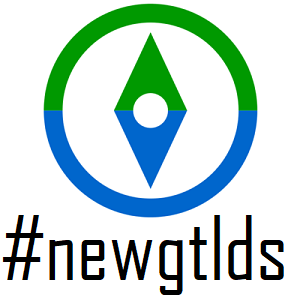
Dismay at the time it’s taking for ICANN to launch a new round of new gTLD applications is an underlying theme for Jovenet Consulting’s Jean Guillon in today’s Domain Pulse Q&A, as well as it’s the insiders who are framing the new applicant guidebook and the larger companies are the ones with the resources to put into submitting applications from an anticipated overly complicated applicant guidebook. But it’s not all dismay as Jean is excited about the future of new gTLDs, his .BEST registry, and he has a French city waiting to apply for its own gTLD and he believes he’s worked out what works and doesn’t. Read on!
Domain Pulse: What were the highlights, lowlights and challenges of 2019 in the domain name industry, both for you and/or the industry in general?
Jovenet Consulting’s Jean Guillon: I don’t see anything
overly important in 2019 apart from the rise of the .BEST Registry which is
working on its “.best” review/social network. I am quite excited,
also because it is a French thing and I only focus on new gTLDs, not legacy
TLDs. One lowlight: some registration figures from certain TLDs are decreasing.
This is a bad sign for certain strings: I take a snapshot of certain group of
TLDs once a month and I now have a clear view on what works, what does not (and
who are the cheaters). Another lowlight: the time it takes ICANN Working Groups
to proceed…sometimes they fight for “a word”. They’ve already been
working for eight years on the next version of the new gTLD applicant
guidebook.
DP: What are you looking forward to in 2020?
JG: A “date from the ICANN”? I am kidding: the
next round of new gTLDs is not expected before 2022 but I think that we are
lucky if .BRAND new gTLD applications are opened at that time and frankly, I am
not sure this happens. Based on what I read, nothing happens in 2022 but I want
to be optimistic: the ICANN WG is truly trying to work on that and we could be
surprised. I think it would send a very positive sign if ICANN was ready in
2022 for .BRAND applications. Also, this year I’d like to find a partner to
work with for the next round of new gTLDs to develop my next $50M annual ROI
project. I don’t think that the “premium” based business model is one
that I would invest in for the next round: I would invest in new gTLD
innovation combined with end user applications. I’d be interested in working
for the French version of some TLDs from multiples registries/backend
registries like Donuts, MMX, Centralnic, Afilias, Radix…
DP: What challenges and opportunities do you see for the
year ahead?

JG: I don’t really mind the .ORG acquisition or the .COM price increase: I even think that it benefits the new gTLD business. In terms of opportunities. I’d say that there is a lot of space for .BRAND new gTLD consulting, in France in particular. Potential applicants need to be taught and trained on what they can do with their new gTLD application, not how they can submit it: it is too early.
We now have all the lessons learned from the first round so teaching and training becomes more precise: consulting offers opportunities. Look at .VIN and its 6,000 domains (in total): there’s no one to work on these for the French market. For .WINE , the dotVinum project projections were 30,000 in year 3 and they are 15,000 in year 5. I believe I can help the operators French gTLDs as a person based in Paris.
DP: How have new gTLDs fared in 2019?
JG: At the moment, I publish a review from certain industries/businesses on that question once a week at gtld.club. However globally, some TLDs have reached a point where they have to be acquired because their volume of domain name registrations keep decreasing: religious, “city name” and finance TLDs for example keep declining and some TLDs just stagnate with registration numbers below 10,000 to 1,000, this for an entire year. Singular and Plural versions of a TLD are a problem. On the other hand, some TLDs are doing well: .VIP (luxury), .BEST (politics), .LIVE (music), .GAMES (singular VS Plural), .ART (photography), .SITE (companies), .CASA (real estate). These are listed in blue in my 20 reports available at gtld.report (a redirection).
DP: What progress do you see on a new round of
applications for new gTLDs in 2020?
JG: None. I am a member of a few ICANN WGs and I find that a
lot of time is being wasted in wording. The group for geographic TLDs seem to
have dropped it and my understanding is that they are not going to change
anything for the next round. Why not launch a new round now then? I have a
potential applicant for a French .CITY waiting. I want ICANN to surprise me and
demonstrate that they are not a lazy profitable company that does not care
about users: 10 years between two new gTLD rounds is too long.
DP: What one thing would you like to see addressed or
changed in the domain name industry?
JG: I think domainers are the loudest on the subject and a
lot of crap is being written on new gTLDs. I understand the views of the domain
name investors but it gives the wrong impressions about new gTLDs. My opinion
is that the new gTLD program is a success because it offers better alternatives
than “.com”. I changed to a “.consulting” domain because it
is what I do, my “.com” did not offer the necessary precision of the
message that I wanted to give. For me, this is common sense and SEO is not
something that website users run after so taking the risk to change a domain
name is not such a problem for many. In the end, the SEO impact is the exact
same. So why not change. My “.com” redirects to my
“.consulting” today.
Something that I would like to see changing are conflict of
interests… As an independent, I cannot compete with ICANN insiders such as members
from certain Working Groups who belong to companies offering new gTLD services.
This is a problem for me because I can’t afford the time spent working in these
groups and they are the ones that will write the next applicant guidebook… thanks
to “multistakeholderism”. Also… I fear that the next applicant
guidebook is written in a way that only ICANN insiders are able to read it,
making it difficult/impossible for potential applicants, who will be forced to
spend huge consulting fees to be able to submit their application. As was the
case for the first round.
This latest Domain News has been posted from here: Source Link
